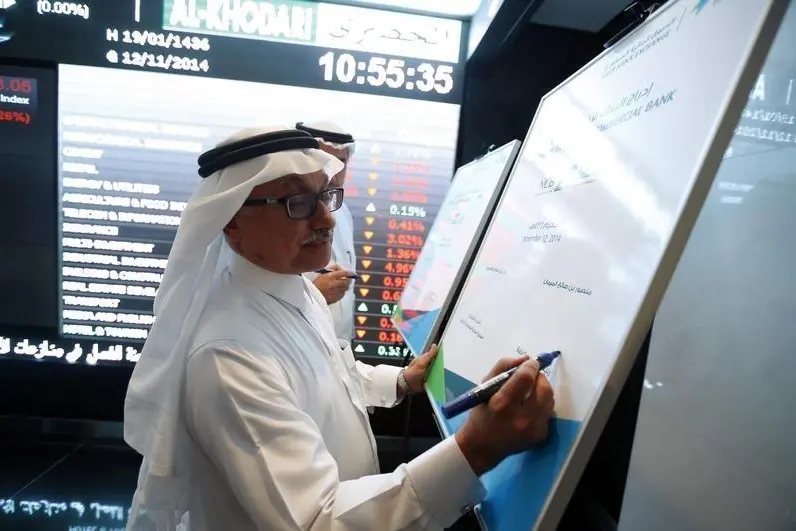PHOTO
Major Gulf stock markets edged lower early on Wednesday because of sagging oil prices and global bourses, but the region's losses were minor despite Brent oil's decline below $50 a barrel for the first time since July 2017.
Oil's 15 percent tumble this month, if it is sustained, threatens major damage to the state finances of most Gulf countries, which could reduce governments' ability to spend on growth and revive investor concern about their financial stability.
As a result, the cost of insuring Saudi Arabian sovereign debt against default has rise in recent days to its highest levels this year, while the Saudi riyal has weakened against the dollar in the forwards market.
However, Gulf stock markets have held up relatively well in the last several weeks, outperforming MSCI's emerging market index. The Saudi stock index slipped only 0.1 percent in the first 75 minutes of trade on Wednesday while Qatar was down 0.2 percent.
Fund managers said many investors were betting that oil prices would not stay so low, anticipating a rebound in the new year when global producers are due to curb output. Investors expect state-linked funds to intervene again if necessary in some stock markets, such as Saudi Arabia, to prevent much larger losses.
Expectations for roughly $15 billion of passive foreign funds to flow into Saudi Arabia next year, when it joins emerging market indexes, are also putting a floor under that market, fund managers said.
In Riyadh, National Commercial Bank shed 1.3 percent early on Wednesday while Riyad Bank rose 0.4 percent. The banks said earlier this week they were in merger talks, sending Riyad Bank jumping to a four-year high on Tuesday. Analysts said the move could trigger a wider banking consolidation.
Saudi Cable Co jumped its 10 percent daily limit after saying it reached a final settlement deal with creditors on 313.6 million riyals ($83.60 million) of loans. The firm will pay 109.8 million riyals with the remaining amount of 203.8 million riyals being waved off by creditors.
The Dubai index slipped 0.2 percent, continuing to hover around five-year lows. GFH Financial, the most active stock, initially fell sharply but then rebounded to stand 1.3 percent higher.
The company issued a statement saying the performance of its shares was primarily due to international and regional stock market pressures and margin calls; GFH said it enjoyed a sound financial position and was committed to maintaining its recent dividend distribution policy.
Qatar's index edged down 0.2 percent with heavyweight Industries Qatar shedding 0.6 percent and Mesaieed Petrochemical slipping 1.1 percent.
But United Development rose 1.1 percent after saying it had finalised a sale agreement with an unnamed strategic Qatari investor for a plot at The Pearl Qatar project, for which it is master developer.
(Reporting by Shakeel Ahmad and Ateeq Shariff in Bengaluru; Editing by Andrew Torchia) ((shakeel.ahmad.thomsonreuters.com@reuters.net;))





















